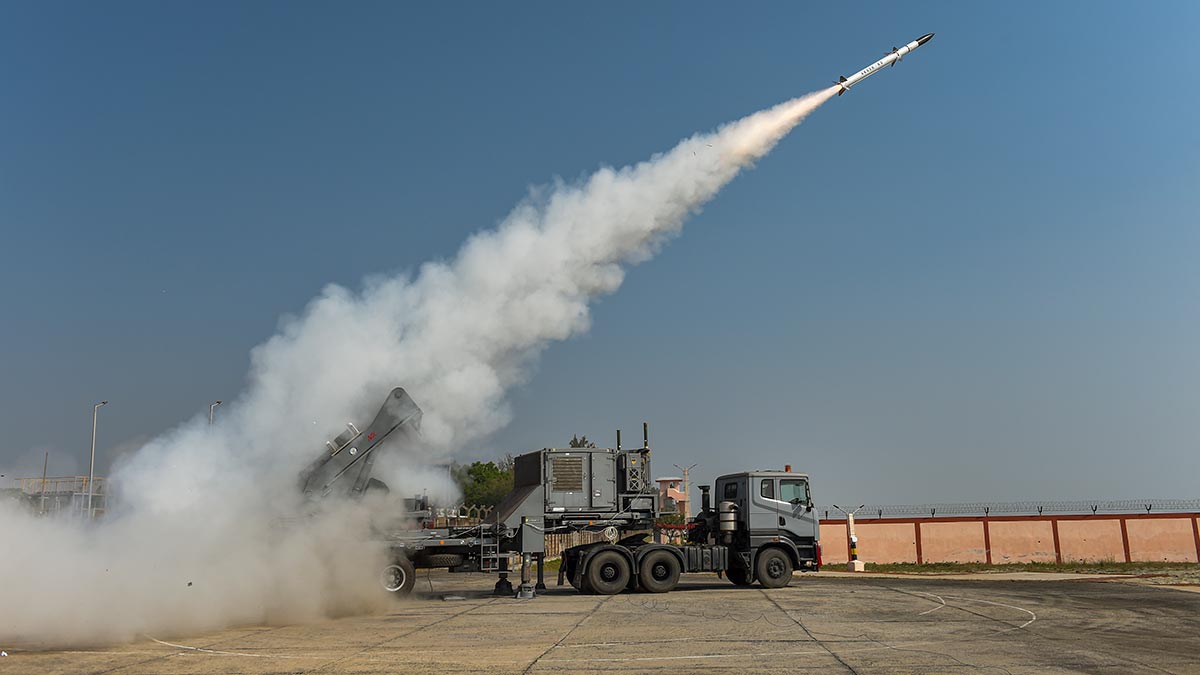Turkish website takes a jibe at India's Akash missile system after deal with Brazil collapses: 'Take our Hisar instead'

A Turkish conservative website has taken a dig at India's Akash air defence system after Brazil decided to stop negotiations with India over the same. India's talks with Brazil fell through after the latter was offered only an older version of the missile system, which lacks the enhancements found in the newer versions co-developed with Israeli firms.
A report that appeared in TRHaber erroneously stated that the "Akash air defence system sold to Armenia on the promise that it could shoot down Turkish UAVs flopped in Brazil." It claimed Brazilian Armed Forces, having examined the system, announced that they had abandoned the purchase of the Akash, which proved to be extremely outdated.
The Akash missile system covers a range of 4.5 km to 25 km and can engage aerial threats flying between 100 meters and 20 kilometres in altitude. It uses a command guidance system and can target helicopters, fighter aircraft, and unmanned aerial vehicles. It is fully automatic, features built-in electronic counter-countermeasures, and is mobile across different terrains.
The Akash system, which is 5.87 meters long and weighs 710 kilograms, has a range of 4.5 km to 25 km. It can also engage aerial threats flying between 100 meters and 20 kilometres in altitude. The newer version, Akash-NG, is command-guided and has a speed of Mach 2.5, but the earlier version lacks specifications like active homing and network targeting. India didn't offer Brazil the Akash-NG, which has a faster reaction time, greater accuracy, and improved resistance to saturation attacks compared to earlier versions.
Turkish conservative media, which often acts as a mouthpiece of the ruling party led by pro-Pakistan President Recep Tayyip Erdoğan, launched a tirade against India and another foe, Armenia, in a bid to play to the gallery. It then went on to speculate that "Brazil will work with Western suppliers, even if it means moving away from BRICS partners like India, in its own interests."
This is even though Brazil and India have strong defence ties, with the former expressing interest in procuring from India other defence equipment, like coastal surveillance systems and the artillery gun Garuda. The two sides discussed joint research and development and co-development of military hardware.
The HRHaber then went on to pitch Turkey's missile system, claiming its Hisar-A+ and Hisar-O+ can suit Brazilian needs. The Hisar-A+ is a
short-range air defence system and a part of the medium and long-range Hisar air defence systems family. The Hisar project is being carried out by Turkish defence firms Aselsan and Roketsan. The system features a search radar, identification friend or foe (IFF), infrared sensors, laser range finder, data link, vertical launcher, and bi-pulsed air defence missile with IIR seeker.
Turkey has promoted the Hisar-O+as a replacement for the Russian S-400, it is a medium-range air defence system that has full 360-degree defence capability and can simultaneously engage and fire against at least nine different targets.
"If the Brazilian government chooses Turkish systems, cooperation on the Embraer-built KC-390 military cargo aircraft could deepen," the report said, referring to Turkey's MoU with Brazilian aerospace giant Embraer for technology transfer and joint production. "The Turkish Armed Forces, which is in need of transport aircraft, may enrich its inventory with the KC-390," the report added.
Middle East